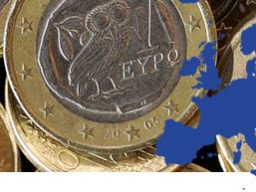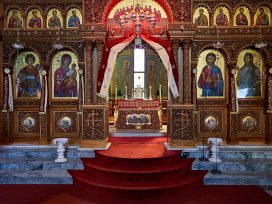It all started two years ago, in the autumn of 2009. Having won a convincing victory at the head of the Pan-Hellenic Socialist Movement (PASOK) in the parliamentary elections, the new Greek prime minister, George Papandreou suddenly opened a real Pandora’s box. Forced to admit to his electors that he would not be in a position to keep his manifesto promises, he accused his New Democracy opponents and predecessors of having concealed the extent of the deficits and debt. To explain the contradiction between his resounding declaration prior to the election (“There’s plenty of money!”) and the inevitable austerity policy that would follow, he deliberately exaggerated the position and compared Greece to the Titanic.
His announcement had serious consequences. The markets took fright; the government found that it was unable to finance its deficit or to honour debt repayment dates. Threatened with bankruptcy, the effects of which would destabilize the entire European economy, the European Commission, the ECB and the IMF set up a troika that came to Greece’s aid by standing in for it in the markets. In exchange, the Greek government was asked to stabilize the situation by reducing the deficit and undertaking structural reforms. This was in spring 2010.
More than a year later, in summer 2011, there was no mistaking the fact that these measures had failed. Reforms had been carried forward only minimally; the public sector was still acting in a spendthrift fashion, despite cuts in salaries and pensions, whilst the public spending deficit had been only slightly reduced and the ratio of debt to GDP was rising. The Greek government, bogged down in its own contradictions, had taken steps that were too late, utterly inadequate and, very often, counter-productive. The administration, already ineffectual and dysfunctional, was now immobilized by incoherent political reactions. The economy slid into a deep recession that could only partly be accounted for by the absence of state stimulus measures and a shrinkage in the purchasing power of civil servants and pensioners. A series of contradictory statements from the government posed threats to various sections of the population (doctors, lawyers, civil servants, and so on), creating a climate of disunity, panic and insecurity. Everyone involved in economic life did what they could to limit their own exposure. In these circumstances, tax revenues sank despite increases in taxation rates and the introduction of entirely new taxes.
The result is that, at the end of 2011, European authorities are once again wondering what policy to follow. Letting Greece go bankrupt, as the conditions of the aid require, could have serious effects on the politics and economy of Europe. Given the modest scale of the Greek economy, even a provisional rescue package for the country would cost much less than the consequences of its insolvency. But a further bail-out would be likely to upset European taxpayers, with good reason. That is why a third way appears to be on the agenda. This involves linking economic support with more direct intervention in the management of the Greek economy. This is a serious option, but one not without risks. Hence, two years after PASOK’s victory, Pandora’s box continues to pour forth ills while, true to the myth, Hope remains locked within.
In the West, the Greek tragedy has caused surprise. The illusion of a Greece that was more familiar and predictable than many other European countries has been shattered to reveal a deep-seated failure to understand. The Greek crisis – today economic but tomorrow perhaps political or even a crisis of stability – exposes the weaknesses of the European project.
It would be wrong to read this crisis by focusing only on the institutional and political aspects of the eurozone. Important though these may be, such a reading remains Eurocentric. The European Union of today, unlike the EEC of yesteryear, no longer restricts itself to established boundaries but nurtures the ambition of spreading to the entire continent. In the past, Europe has, of course, fulfilled geo-economic, geopolitical and geo-strategic ambitions; nevertheless, this new objective involves problems that have more to do with cultural geography than with economics or institutions.
Perception and reality
 Greece has a central position in the European imagination. Once modernity had established its legitimacy on the basis of antiquity, and a country such as Germany had constructed itself on a mystical affinity with Greece, it was impossible not to include Greece in the contemporary European scene. The creation of the modern Greek state in the nineteenth century thus needs to be understood first and foremost as a large-scale European identity project. Regardless of the climate of antagonism between France, Britain and Russia that accompanied Greek independence, it was one of the most important affirmations of a European identity.
Greece has a central position in the European imagination. Once modernity had established its legitimacy on the basis of antiquity, and a country such as Germany had constructed itself on a mystical affinity with Greece, it was impossible not to include Greece in the contemporary European scene. The creation of the modern Greek state in the nineteenth century thus needs to be understood first and foremost as a large-scale European identity project. Regardless of the climate of antagonism between France, Britain and Russia that accompanied Greek independence, it was one of the most important affirmations of a European identity.
It therefore comes as no surprise that Europe should have tried to build Greece in its own image. Anyone visiting the centre of Athens today can immediately see the two ways in which ancient Greece was appropriated by European modernity: every trace of the real past, whether Byzantine or Ottoman, was effaced and Athens literally taken over by its neo-classical, European image.
This symbolic appropriation was repeated a century-and-a-half later when Greece joined the EEC. On close examination, this event emerges as a real paradox, both culturally (orthodox, post-Ottoman Greece joined before Spain and Portugal) and geographically (the EEC was embracing a country isolated from its own territory). It was a paradox that nonetheless confirms the singular place that Greece then occupied as a symbol in European thought.
Given that its image as a modern country has become so important, it is now difficult to see the country as standing outside geopolitical norms. Europe has learnt to conceive of Greece as the perfect embodiment, almost the ideal, of “Westphalian sovereignty”, composed of the trinity of nation, state and territory. Admittedly, this ideal suffered from persistent flaws, such as banditry, nationalist conflict, government negligence, and political instability. However, since they were blamed on the legacy of Turkish domination, these could gradually be effaced, thanks to the influence of Europe.
European paternalism towards Greece met with some bitterness and several serious disappointments; however, these always seemed to disappear after a few years. The recent relationship between Greece and Europe (with or without its American extension) has thus been characterized by something like bipolar disorder. Positive and negative attitudes existed simultaneously towards the fascist-style “Greece of the Colonels” (1967-1974), the democratic, pro-European “Greece of Karamanlis” (1974-1981), the “Socialist Greece” in which freedoms and social justice were developed (1981-1989), the “Nationalist Greece”, involved in disputes about Macedonia and solidarity with Serbia (1989-1999), and finally the “Greece of the modernizers”, which joined the eurozone and organized the Olympics in 2004. Today, the picture has darkened once again.
The nation
If we are to go beyond the stereotypes we must first question the validity of the Westphalian model as it applies to Greece. At first sight, there are few nations that seem as simple and straightforward as the Greek one. It has existed since ancient times; for a few centuries it was subject to the “Turks”; then, in 1821, it supposedly re-awakened, creating a state, liberating its brothers and recovering its territories. Behind this account, one that Europe has been happy to accept, there lies concealed a reality that is much more complex. The present-day population of Greece is, for the most part, made up of descendants of Rums (Greek Orthodox subjects of the Ottoman Empire). Up to the mid-nineteenth century, religious adherence was the main defining element of identity of their ancestors. They were not all Greek-speaking: many were speakers of Albanian, Turkish, Wallachian or a Slavonic language. Only a small portion of them lived in what is now Greek territory: most were dispersed throughout the Balkans, around the Black Sea, in Asia Minor or in Egypt.
In this sense, Greece has acted as a melting-pot, causing it more to resemble Israel than, say, France. Behind the apparent “ethnic” homogeneity there lies a diversity of origin, of culture, of anthropological reality that, for Greek society, is a major advantage in terms of resilience and openness. The Albanian anthropological base (the Arvanites), for example, explains the success of Albanian immigration into Greece since the end of the Cold War.
Despite the existence of a highly westernized cosmopolitan elite, the population of Greece is culturally, for the most part, eastern. Aside from occasional nationalist twitches, the average Greek is more at home with a Turk, a Lebanese or a Sephardic Jew than with an Englishman or a German. The bulk of the Greek population can therefore easily lapse into anti-European and anti-western attitudes more or less borne by historical grudges (ranging from the schism and the medieval crusades to the Nazi occupation in the 1940s). The Greek Communist party, one of the few of its kind still active, owes its influence to anti-western resentment far more than it does to Marxist ideology.
The underlying religious stratum of the Greek nation means that it is framed by two institutions: the Orthodox Church and the state. Any failing on the part of the state can be made up for, at least in part, by the Church. Religion is therefore an important element in the resilience of Greek society, something many western technocrats with different experiences of the relationship between politics and religion find hard to grasp.
The state
When the experts of the IMF, EU and ECB arrived in Athens in 2010 and looked behind the scenes of the Greek administration, they received an unpleasant surprise. The predominantly economist outlook of international experts persists in ignoring the fact that the term “state” may pertain to a wide variety of differing historical forms. The peculiarities and problems of the Greek administration can be explained by looking at how the state was constructed and the tensions this process created between the Athenian elite and the rest of the population. The weaknesses of the state resulted from the compromise between the centre and the periphery. During the first few decades of Greek statehood, this compromise depended upon the need to ensure a minimum level of political and military stability within the newly constituted territory.
After Greece’s protracted emancipation from the Ottoman Empire in 1829, the Greek state was established by German court officials who, from 1832 onwards, supported the first king of Greece, the Bavarian Prince Otto. Centralization was imposed by an army of European mercenaries in the face of resistance from a society whose political, institutional and cultural structure still belonged to the Ottoman period; that is, it was decentralized and organized in the form of interlocking networks.
The building of the modern state was carried out, with difficulty, throughout the nineteenth and twentieth centuries, with advances and retreats. In order to win the allegiance of the rural population, who were resorting to banditry in response to imported political modernity, the central power used the mechanisms of state, not only as an instrument of repression, but also as a system with which to distribute a kind of income or tribute. The principal currency was recruitment by the state. Initially, a post in government service was the reward for submission pure and simple; later the prize was suffrage.
This compromise by the Athenian elites, discreditable as it was, partly explains the governments’ chronic budget deficits. It also explains the administration’s lack of efficacy. Senior administrators were recruited under criteria that had little to do with competence. Civil servants felt that they had obtained a sinecure rather than a mission to be fulfilled. If this was so, what was the point in working?
In order to distribute an income to a sufficient number of clients, the political elite had to find sources of finance. One of the solutions found to support this overblown state was to tax the economy very heavily. This, in turn, implanted the tradition of tax evasion, creating a strange line-up of forces: the state against the economy, the economy against the state. Since income from taxes was never sufficient, it was also necessary to turn to foreign countries: in the past to Europe and the United States, today also to Russia and China. The Greek elites have learnt how to exploit feelings of sympathy towards Greece and the geo-strategic position of the country in order to obtain foreign finance. They have set themselves up as intermediaries between a population with an eastern culture – one that demanded an income in exchange for its submission – and the western powers. Out of a mixture of naivety and geopolitical calculation, the latter have been willing to supply the necessary funds.
Of course, it is possible to criticise such a view as being too schematic or even reductive. There have been periods during which the Greek state has succeeded in implementing considerable reforms. When spurred on by strong political personalities such as Charilaos Trikoupis at the end of the nineteenth century or Eleutherios Venizelos and Ioannis Metaxas in the inter-war period, Greece has been capable of operating efficiently. More recently, Constantine Karamanlis was twice able to fight the chronic weaknesses of the state (1955 to 1963 and 1974 to 1981). Since 1981, however, the Greek administration has resumed its bad habits.
Andreas Papandreou, the founder of PASOK and prime minister from 1981 to 1988, made his political mark by obtaining new European funding (for example the Mediterranean integrated programmes) and setting up a party network to distribute this European manna. Influenced by Marxist theories about the dangers of “legalism”, i.e. winning power through electoral conquest, he installed, within an administration that he considered to be too favourable to his rightwing predecessors, commissars, popularly known as prassinofrouri (“green guards”, the equivalent of the red guards but in the colours of PASOK). The old hierarchy was abolished and its competence and its efficiency questioned. Thirty years later, as the last functionaries of the pre-1981 generation retire, we can see the real results of this.
The Andreas Papandreou era was also characterized by the prime minister’s jocular statement that it was the right of any political official or civil servant to “allow himself a little gift”, providing he did not exceed certain limits. By tolerating corruption, PASOK ensured that it had even greater control over the administration.
As successor to Andreas Papandreou at the head of the party, Costas Simitis distinguished himself by supervising Greece’s entry into the eurozone. The doors to the financial markets were thrown wide open. In the Simitis era, wealth and conspicuous consumption became the touchstones of social success (to the benefit of the European luxury car industry). The trade deficit was a consequence of this trend. Credit and European funding nevertheless cushioned the psychological impact of public deficits, massive consumption of imported goods and a loss of competitiveness.
Rather than stimulating modernization, Greece’s participation in the EEC, the European Union and the eurozone acted as an anaesthetic. Protected by an over-indulgent Europe, Greeks lost all sense of economic and social reality. Ease, laxity and parasitism prevailed. Electors rejected political leaders who advocated policies of austerity, preferring promises of jobs, salary increases and early retirement. Politicians were elected who were prepared to tolerate corruption, closed shops in certain professions, oligarchies and so on. The state, as intermediary between Greece and Europe, was entrusted with the management of the flow of cash. As a result it became bloated and suffocated the private sector. The European opportunity that had been created by the efforts of Karamanlis in the 1960s and 1970s was transformed into an economic, political and moral disaster.
The territory
According to the Westphalian model, nation and state fall within a clearly-defined perimeter that determines the national territory. One thinks of Greek territory – from Crete to Macedonia and from the Ionian islands to the Dodecanese – as being eternally Greek, from antiquity to the present day. This area, which roughly corresponds to an imagined historical geography, was really a crossroads traversed, inhabited and dominated by a succession of populations, states and empires.
Though culturally multiform and historically discontinuous, the Greek nation today has been forged by its institutions (state and Church) on the foundations of the community of Orthodox Christians. Nevertheless, the national territory is only one of the multiple spaces of this nation. A great number of Greeks live, either partly or entirely, beyond the control of Greek state. They constitute the most successful section of the nation. They are active in merchant shipping, a sector that operates on a world scale. The Greek diaspora is scattered across every corner of the world, often dependent on the dioceses of the Ecumenical Patriarchate of Constantinople (the seat of which is still in Istanbul), and is a highly dynamic actor on the international stage.
Greek space therefore does not coincide with Greek territory. A great number of Greek actors are able to negotiate their presence on the territory. If the state demands too much from them – if Greek politics disappoints them – they are able to move to other Hellenic areas. At the same time, the link with the nation is never completely severed. It is kept intact by bonds of family, friendship and religion. A feature of periods when the state undertook reforms and re-established its authority has been the return of Greeks from overseas, the effect of which has been very noticeable in terms of economic and social progress. The existence of other national areas outside the state constitutes one of Greece’s strengths, a strategic reserve that it is important to preserve.
The role of Europe
Comparing European illusions with historical and geographical realities reveals the origin of these misunderstandings. Europe’s good intentions have often led to corruption and patronage, to the triumph of social climbing, to the departure of active social forces and the political marginalization of true pro-Europeans. Having once overestimated Greece by concluding that it had an effective government, today Europe underestimates Greece’s ability to bounce back thanks to its extra-territorial and cultural reserves.
When it joined the EEC, the Greek economy was underdeveloped but very balanced: debt was scarcely more than 25 per cent of GDP. In the thirty years of EU membership, a series of developments has led to a major enhancement of its comparative advantages. Greece’s geographical situation, marginal during the Cold War, has become central. Enormous opportunities became available to its companies and businessmen through the opening up of the Balkan and eastern European areas after 1989. Globalization has created extraordinary possibilities for expansion for a people that was widely dispersed. The development of international tourism could not help but benefit Greece. Finally, the spread of information technology, the image economy, and marketing and branding enabled the promotion of the world-famous brand: Greece.
A solid basis, a highly favourable geo-economic climate, political and economic support from Europe: how has Greece ended up on the brink of bankruptcy? Explanations emphasizing the handicap represented by the euro seem inadequate. There was nothing about its geography that predestined Greece to become the eurozone’s weakest link. Its economy could have been capable of performing exceptionally well.
The Greek problem is not economic; it is political. It is a matter of how the state functions. The legacy of the Ottoman Empire and the difficulties experienced in establishing itself as a modern society caused traumas to be reawakened after 1981 when Greece was transformed into a beneficiary of Europe. Instead of contributing to a clean-up of political life and a modernization of the economy, European funds financed the growth of tumours on the Greek political and economic body. These in turn ended up destroying or marginalizing any healthy influences.
Such a statement in no way absolves the Greeks of responsibility. The ambition of a number political and intellectual leaders, combined with the political immaturity of the electorate, led to Hubris. However, by staving off Nemesis, European influence made the tragedy more acute.
European responsibility is perhaps political and moral, and certainly intellectual. Was it blindness? Or just clumsiness? Europe is currently experiencing the consequences of its mistakes – and, to judge from the policies of its representatives, persists in failing to comprehend. Relations between Europe and Greece have become more fragile as a result. Just as there are those in Europe who contemplate Greece’s expulsion, so there is a growing feeling in Greece itself that the country must free itself from what many think of as the “European yoke”.
An anti-western Greece?
Faced with a crisis that is causing it to suffer, Greek society is once more becoming aware of economic “fundamentals”, of the weaknesses in its political life and of its own responsibilities. Greek society is capable of mobilizing the inherited structures and traditional institutions that the dream of an all-bountiful state had overshadowed: family, neighbourhood, Church. The halt to the flow of money will lead to a reduction or even disappearance of illicit networks within the state. The difficulties will clean up the political landscape. Penury is painful but good for you. In five to ten years, Greece will have followed the same route as Turkey did in the first decade of this century. The “creative destruction” beginning in Greece will bear fruit, thanks to comparative advantages, strategic reserves, and the resilience of a society that has lived through major difficulties in the relatively recent past.
Contrary to appearances, the principal aspect of the Greek problem for Europe is not economic but geopolitical.
With its never-ending series of xenophobic stereotypes, the European press has resurrected images of an arrogant, scornful, dominating West. The previous Greek government (2009-2011) did not doing anything to improve matters by blaming European diktats, whether real or imagined, for the austerity measures. Placing the Greek administration under the supervision of European experts is a delicate operation that ought to be seen as a contribution to the effective running of the state. Nevertheless, it is being handled in an insensitive fashion that is already provoking violent reactions. Finally, the unavoidable privatizations seem more and more like a sequestration of national wealth by foreign groups and Greek oligarchs who control the national press – the very people held responsible for the suffering of ordinary people.
Today’s economic disaster is once more posing the question of Greece’s geopolitical orientation. Many are beginning to compare it to the Turkish invasion of Cyprus of 1974, which brought political change but at a very high cost. It is difficult to foresee the moment and the conditions that might overturn Greece’s delicate equilibrium. Default, social explosion, conflict with Turkey? One way or another, we must expect a painful breakdown that risks triggering a wave of anti-European or even anti-western feeling.
The western Balkans are not stabilized. It is difficult for Serbia to forget its humiliation over Kosovo. Turkey is increasingly turning away from the West. The weakening of American influence in the Middle East and the Arab Spring are creating new uncertainties. Russia and China are building up their networks and their influence in Cyprus and in Greece. Any resurgence of anti-western feeling in Greece would do nothing to improve this situation. Were this to happen it would amount to a failure for Europe, a serious blow to its “soft power”, a weakening of the European image that, given the economic situation, is so necessary.
It is certainly not the time for Europe to agree to additional economic concessions; this would just reinforce the slippage that has characterised previous decades in Greece. Instead, closer attention should be paid to relations with the Greek people and their political leadership. Only cooperation between responsible, legitimate Greek politicians and European administrators sensitive to the cultural aspects of European integration can save the situation.
Unlike leaders of large countries, who often have no knowledge of the culture of those with whom they are dealing, or who, worse still, argue in terms of received ideas, political leaders of small countries tend to have excellent knowledge of European or American culture. Understanding the other person allows you to tailor what you say to what they can readily understand, to present ideas that are easy to assimilate and to exploit weaknesses or sensibilities. The aim of opportunist administrators is to gain sympathy by presenting themselves as defenders of western values in the face of a people that is backward, corrupt or fanatical. The financial or other advantages obtained are used to gain political influence within one’s own country. However, such “friends of the West” rarely succeed in handling power. Their failures, their moral and political sins simply stoke the fires of the anti-western forces.
The United States saved Greece from the Communist danger at the end of the 1940s and helped it to rebuild itself. American support for the dictatorship of the Colonels, who were docile and flattering, little by little turned Greek public opinion into violent anti-Americanism. With the fall of the Colonels in July 1974, the danger of a return to anti-westernism in Greece was very real. The situation was saved in extremis. Constantine Karamanlis, in self-imposed exile in Paris, maintained a distance from both the Colonels and the anti-western Left. He was pro-western and pro-European; American diplomats disliked him because of his warnings, his criticisms and his independence. Henry Kissinger considered him a dyed-in-the-wool nationalist, a “Greek De Gaulle”. At the critical moment, when the Colonels’ regime was crumbling, Karamanlis was called to Athens. Giscard d’Estaing gave him political and military support, the extent of which is still not known. Karamanlis and the French president succeeded in breaking down the wall of incomprehension that stood in the way of relations between East and West. Greece was saved from yielding to a temptation that, fifteen years before the fall of the Berlin Wall, would have taken it a long way from Europe. The West avoided a serious geopolitical and geo-strategic crisis in the eastern Mediterranean.
Greece and Europe must today take their inspiration from this precedent.
Moving forward, opening up
In 2011 Europe discovered how troublesome a small country can be whose economy accounts for less than three hundredths of that of Europe as a whole. Rather than turning its ire against the Greek people, it is in Europe’s interest to look inwards, to understand its own role in such a failure. The discussion about the contradiction between monetary union and political fragmentation is just one aspect of this process of questioning. Alone, this discussion can only lead to a dead end. Simply adding to the misunderstandings between the various cultural components of the European Union, instead of coming to terms with them, makes the prospect of political union ever more remote.
The choice facing Europe is clear: to pursue its process of enlargement or retreat from it by dividing itself geographically into sub-groups defined by economic criteria. If the second option is followed, the dangers that the founding fathers of Europe aimed to prevent will rear their heads once more.
In order to continue to move forward, to fulfil the dream of a greater Europe extending to the Mediterranean, a change of paradigm is essential. In order to integrate ever greater cultural diversity, there must be an effort at opening up in terms of ideas and identities. Admittedly, there is a high price to pay in spiritual terms. But, in a changing world, one increasingly populated by new powers that draw their strength from their cultural difference with the West, there is no other solution if we are to avoid the decline that was already being foretold in 1920. Studying the Greek case may provide useful indicators as to how to progress in this direction.








